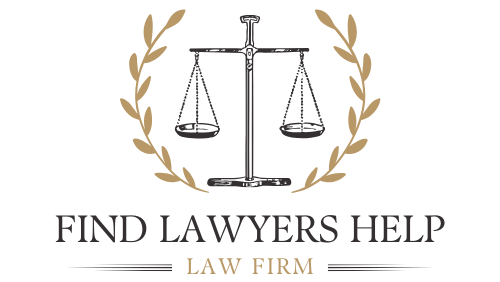
Comparative Legal Services: Exploring Real Estate and Estate Planning Law in Australia and Canada
Comparative Legal Services: Exploring Real Estate and Estate Planning Law in Australia and Canada
The legal frameworks governing real estate and estate planning in Australia and Canada share similarities but also exhibit distinct differences shaped by each country’s unique legal, cultural, and economic contexts. This article provides a comprehensive overview of the real estate and estate planning laws in both nations, highlighting key features, challenges, and best practices. Additionally, we will explore how these legal services impact individuals and businesses in both countries.
Overview of Real Estate Law
Real estate law encompasses a wide range of legal issues related to property ownership, use, and transfer. In both Australia and Canada, real estate transactions are governed by a combination of statutory law, common law principles, and local regulations.
Key Components of Real Estate Law
- Property Ownership: Both countries recognize various forms of property ownership, including freehold, leasehold, and strata title in Australia.
- Transfer of Property: The process of transferring property ownership involves contracts, conveyancing, and registration with relevant authorities.
- Zoning Laws: Local governments regulate land use through zoning laws that dictate how properties can be developed or modified.
Real Estate Law in Australia
Legal Framework
In Australia, real estate law is primarily governed by state legislation. Each state has its own set of laws that regulate property transactions. Key legislation includes:
- Conveyancing Act 1919 (NSW): Governs the transfer of property in New South Wales.
- Property Law Act 1974 (QLD): Regulates property transactions in Queensland.
Foreign Investment
Foreign investment in Australian real estate is regulated by the Foreign Investment Review Board (FIRB). Non-residents must obtain FIRB approval to purchase property, typically granted for new developments or vacant land.
Challenges
- Affordability: Rising property prices have made home ownership increasingly difficult for many Australians.
- Regulatory Complexity: Navigating the various state laws can be challenging for both local and foreign buyers.
Real Estate Law in Canada
Legal Framework
Canadian real estate law is influenced by both federal and provincial legislation. Key components include:
- Land Titles Act: Governs the registration of land titles in various provinces.
- Provincial Real Estate Acts: Each province has its own regulations governing real estate transactions.
Foreign Investment
Similar to Australia, foreign buyers must comply with specific regulations when purchasing property in Canada. Recent measures have included restrictions on foreign ownership in certain markets to address housing affordability concerns.
Challenges
- Market Volatility: Canadian real estate markets have experienced significant fluctuations, leading to concerns about affordability and accessibility.
- Regulatory Variability: Differences between provinces can create confusion for buyers and investors.
Comparative Analysis of Real Estate Law
| Aspect | Australia | Canada |
|---|---|---|
| Legal Framework | State-based legislation | Provincial and federal legislation |
| Foreign Investment | FIRB approval required | Varies by province; some restrictions |
| Property Ownership Types | Freehold, leasehold, strata title | Freehold, leasehold |
| Affordability Issues | Rising prices in major cities | Market volatility affecting affordability |
Overview of Estate Planning Law
Estate planning involves preparing for the transfer of an individual’s assets after death. This includes wills, trusts, powers of attorney, and other legal instruments designed to manage an individual’s affairs.
Key Components of Estate Planning Law
- Wills: Legal documents outlining how an individual’s assets will be distributed upon death.
- Trusts: Arrangements that allow a third party to hold assets on behalf of beneficiaries.
- Powers of Attorney: Legal documents that grant someone authority to make decisions on behalf of another person.
Estate Planning Law in Australia
Legal Framework
In Australia, estate planning is governed by state legislation. Key laws include:
- Wills Act 1970 (WA): Governs the creation and validity of wills in Western Australia.
- Succession Act 2006 (NSW): Regulates intestacy and the distribution of estates in New South Wales.
Challenges
- Complexity: Navigating different state laws can complicate the estate planning process.
- Family Disputes: Wills can lead to disputes among family members, particularly if not clearly drafted.
Estate Planning Law in Canada
Legal Framework
In Canada, estate planning is also governed by provincial laws. Key components include:
- Wills Estates and Succession Act (British Columbia): Governs wills and estates in British Columbia.
- Succession Law Reform Act (Ontario): Regulates intestacy rules in Ontario.
Challenges
- Tax Implications: Estate taxes can significantly impact the distribution of assets.
- Interprovincial Variability: Differences between provinces can complicate cross-border estate planning.
Comparative Analysis of Estate Planning Law
| Aspect | Australia | Canada |
|---|---|---|
| Legal Framework | State-based legislation | Provincial legislation |
| Wills Validity | Governed by state-specific acts | Governed by provincial acts |
| Tax Implications | Varies by state; generally no inheritance tax | Varies by province; capital gains tax applies |
The Role of Legal Professionals
Legal professionals play a crucial role in navigating both real estate and estate planning laws. In both countries, lawyers provide essential services such as:
- Drafting contracts and agreements
- Conducting due diligence
- Advising clients on regulatory compliance
- Representing clients in disputes or negotiations
Best Practices for Clients
- Engage Qualified Professionals: Always consult with qualified lawyers specializing in real estate or estate planning to ensure compliance with local laws.
- Stay Informed: Keep abreast of changes in regulations that may affect property ownership or estate distribution.
- Document Everything: Ensure all agreements are documented clearly to avoid future disputes.
Conclusion
The comparative analysis of real estate and estate planning laws in Australia and Canada reveals both similarities and differences shaped by each country’s unique context. Understanding these legal frameworks is essential for individuals seeking to navigate property transactions or plan their estates effectively. By engaging qualified legal professionals and staying informed about regulatory changes, clients can better protect their interests in both jurisdictions.
FAQ Section
Q1: What are the main differences between real estate law in Australia and Canada?
A1: The main differences lie in the legal frameworks governing property transactions—Australia operates under state-based legislation while Canada has a mix of federal and provincial laws. Additionally, foreign investment regulations differ between the two countries.
Q2: How does foreign investment work in Australian real estate?
A2: Foreign investors must obtain approval from the Foreign Investment Review Board (FIRB) before purchasing property. Generally, FIRB approval is easier for new properties than for established ones.
Q3: What challenges do individuals face when planning their estates?
A3: Individuals may encounter challenges such as navigating complex state or provincial laws, dealing with potential family disputes over wills, and understanding tax implications associated with their estates.
Q4: Why is it important to engage a lawyer for real estate transactions?
A4: Engaging a lawyer ensures compliance with local laws, helps navigate complex documentation processes, provides guidance on regulatory requirements, and offers representation in case of disputes.For further information on real estate law in Australia, you can refer to Australian Government – Property Ownership.
